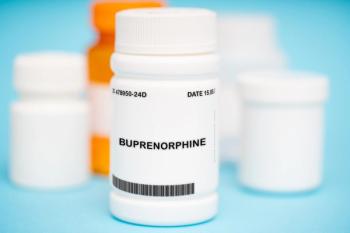
Now there's a master's in pharmacy regulation
How can pharmacy graduates obtain a better understanding of the role of pharmacy in the public process of legislation and regulation? How can they learn to advocate for the public good?
Enter the University of Florida College of Pharmacy's new Master of Science in Pharmacy Regulation and Policy. The program is the only one of its kind in the country.
David Brushwood, R.Ph., J.D., professor of Pharmacy Health Care Administration at the University of Florida and program director, told Drug Topics that the on-line program, which begins this month, consists of nine eight-week courses that are to be taken over a 22-month period. Students are also required to attend three weekend seminars at the University of Florida in Gainesville. The first speaker slated is Robert Steeves, a lawyer and pharmacist who worked at the Food & Drug Administration.
Brushwood said the pharmacy industry has been successful in the past decade in being able to advocate for patients through vaccinations, drug therapy management, and recently through medication therapy management. But there have also been some failures. "Pharmacists continue not to be compensated well for the clinical services they provide," he said. The drug product is seen as a burden to many insurance plans, rather than a benefit. Sometimes government agencies and other programs try to figure out how they can save money by cutting down on drug usage when the public interest would be best served by increasing the drugs because it keeps people well, he said.
"We've not made this case effectively. We haven't done a good job of explaining how important it is for everyone to work together to prevent errors in pharmacies rather than just blaming pharmacists when mistakes happen," said Brushwood. "There's real opportunity for us to advocate in the public interest and the interest of the pharmacy profession. We are going to train people so they will have a knowledge base and familiarity with the field of regulation. Then they can go to state and federal government agencies, nongovernmental organizations, prescription benefit managers, or state Medicaid. By knowing the rules, they can then advocate for pharmacy in the public interest."
Brushwood said students will study the use of the drug product within a patient care setting and how to improve public policy in order to better benefit patients by using pharmacists.
"We have all sorts of opportunities in pharmacy to influence the system in positive ways, and in pharmacy school we train people to be really good care providers to individual patients," said Brushwood. "We do an excellent job in pharmacy school of teaching pharmacy students how to improve drug therapy for individual patients. We don't do as good a job focusing on the entire population-on all patients-and teaching pharmacy students how to improve the system so pharmacists are used more effectively and drug therapy outcomes for everyone improve."
The courses that make up the master's program include the following:
National experts will discuss the following topics: postmarketing surveillance, supportive personnel in pharmacy, Rx benefit management programs, medication errors, clinical trials, telepharmacy, and Medicare.
The natural entry point of the curriculum is August of each year. However, students who are well prepared can apply and begin at other times of the year with permission.
Newsletter
Pharmacy practice is always changing. Stay ahead of the curve with the Drug Topics newsletter and get the latest drug information, industry trends, and patient care tips.























